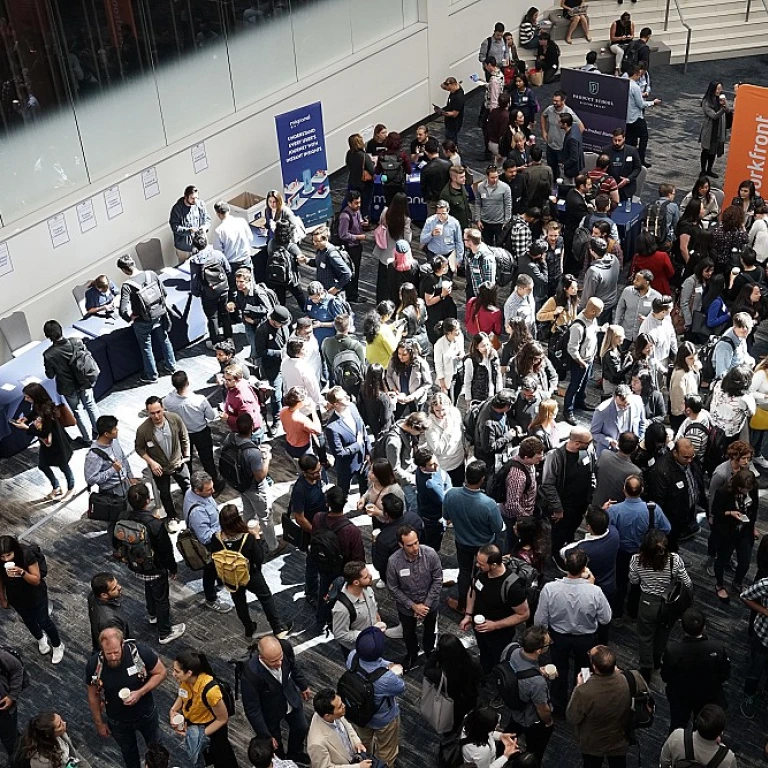Explore effective HR interview techniques to enhance your hiring process and assess candidates effectively.
Understanding the Interview Process
Grasping the Fundamentals of the Interview Journey
The hiring process is often seen as a journey, with each step crucial in ensuring that the best candidate joins the organization. One of the most integral parts of this journey is the interview process. It's not just about asking questions; it's about creating an environment where both the company and the candidate can transparently share expectations and values.
An effective interview goes beyond merely evaluating a candidate's skills and experience. It involves understanding the nuances of how their personal attributes align with the organization's culture and the role's requirements. This understanding forms the basis for crafting effective interview questions and assessing candidates effectively later in the process.
Additionally, there are often multiple types of job interviews employed by companies, from traditional one-on-one interviews to innovative virtual assessments. Knowing which type aligns best with the organizational goals and industry practices can provide a significant edge in the hiring process.
Through these preparations, companies can not only enhance the candidate experience but also leverage technology to make the process smoother and more efficient. By understanding the fundamentals of the interview process, organizations lay the groundwork for a successful hiring strategy that achieves their goals and fosters long-term growth.Types of Job Interviews
Exploring Various Interview Formats
When delving into the realm of job interviews, it becomes evident that they are as diverse as the candidates themselves. Each type of job interview is a unique tool in the HR professional’s toolkit, tailored to suit different roles, industries, and organizational cultures. Let's explore some of the primary interview formats and how they can be effectively leveraged.
Traditional one-on-one interviews remain the cornerstone of many hiring processes. They offer a personal touch, allowing for a deeper connection and the intuitive assessment of a candidate's soft skills. These interviews are often ideal for roles that require strong interpersonal communication and fit into a company’s culture.
Panel interviews, on the other hand, bring diversity of perspective into the evaluation process. By involving multiple interviewers from various departments, they can provide a holistic view of the candidate’s potential contributions. This format is particularly beneficial for collaborative environments where interdepartmental communication is key.
For roles that demand problem-solving and quick thinking, situational and behavioral interviews shine. By posing hypothetical scenarios, these interviews challenge candidates to demonstrate their problem-solving abilities and how they might approach challenges similar to those they may face in the desired role.
The rise of remote work has propelled the popularity of video interviews, an efficient alternative that eliminates geographical barriers. This format is cost-effective and convenient, especially beneficial during the initial stages of the interview process.
As you can see, understanding these interview types is crucial, as explored in our insights into effective assessment techniques. The strategic selection and implementation of the appropriate format can significantly influence the outcome of candidate evaluations, leading to more successful hiring decisions.Crafting Effective Interview Questions
Designing Questions That Reveal the Right Fit
Creating effective interview questions is a crucial aspect of HR interviews that can make or break the hiring process. Well-crafted questions allow interviewers to gain deeper insights into candidates’ skills, experiences, and cultural alignment with the organization. Here, we delve into strategies to design questions that unearth the most valuable information.
One key strategy is to tailor questions to the specific role. Generic questions often lead to generic answers, which can make it difficult to discern between candidates. Instead, consider the unique challenges and requirements of the position and frame your questions around these aspects. For example, if hiring for a project management role, questions might dive into past experiences with conflict resolution or managing tight deadlines.
Behavioral questions are another effective technique. These questions explore how candidates have handled situations in the past, providing a window into their behavior and problem-solving skills. Utilizing the STAR method (Situation, Task, Action, Result) can help structure these questions and encourage candidates to provide thorough, insightful answers.
Moreover, incorporating situational questions can also prove beneficial. By asking candidates to outline how they would handle hypothetical scenarios relevant to the job, you can assess their analytical abilities and decision-making processes. This method complements the assessment section of the hiring process by offering a preview of a candidate’s performance in real-time situations.
Additionally, do not overlook the importance of crafting open-ended questions. These questions invite candidates to elaborate, providing a more comprehensive view of their thought processes and abilities. Open-ended questions foster a two-way conversation, which not only engages the candidate but also enhances their experience, a key point discussed earlier.
Lastly, aligning questions with the company’s values and culture is essential. Questions that reflect organizational principles help determine if the candidate will fit well within the team, a critical component for ongoing success. A thoughtful blend of technical and culture-focused questions can identify not only competent candidates but those who will thrive within your company.
In essence, crafting the right interview questions requires a blend of specificity, structure, and foresight. By focusing on these elements, interviewers can uncover truly valuable insights that aid in making informed hiring decisions.Techniques for Assessing Candidates
Analyzing Candidate Responses Effectively
Once armed with thoughtfully crafted interview questions, it's time to delve into techniques that allow HR professionals to accurately assess candidates' responses. A well-conducted interview not only uncovers a candidate's qualifications but also provides insight into their problem-solving abilities, cultural fit, and potential for growth.
To begin with, active listening is crucial. This involves not just hearing words but understanding and interpreting the underlying message the candidate communicates. This level of engagement helps to identify nuances in their answers, gaps in their experience, or signs of nervousness that might need to be addressed. Additionally, it's essential to maintain a conversational tone to ease the candidate and encourage authenticity.
Employing the STAR method—assessing situations, tasks, actions, and results—can be invaluable in understanding how candidates have tackled challenges in the past. Encouraging candidates to provide specific examples helps gauge their real-life competencies and effectiveness.
HR professionals can also benefit from behavioral interviewing techniques, predicting future behavior based on past actions. By focusing on behavioral and situational questions, interviewers can assess how a candidate might handle scenarios they would face in the role they’re applying for.
Another effective technique is scoring responses against a predefined rubric. This not only minimizes bias but also creates a structured approach to compare candidates across the same role more consistently.
Finally, while evaluating, do consider the candidate's personal traits and soft skills. These attributes—like communication skills, adaptability, and teamwork—often play a pivotal role in thriving in a professional setting and should not be overlooked in favor of technical capabilities alone.
Building from this assessment approach, the subsequent background checks and reference verifications complement the insights gathered during interviews, leading to a comprehensive understanding of each candidate's potential success within the organization.Enhancing the Candidate Experience
Creating Positive Impressions and Lasting Relationships
In today's competitive job market, a well-structured interview process is only part of the equation for successful hiring. Equally important is how candidates perceive the company during and after the interview process. To truly enhance the candidate experience, HR professionals must focus on creating positive impressions and establishing lasting relationships.
One crucial aspect is ensuring a welcoming atmosphere. From the initial communication to the post-interview follow-up, every interaction should convey respect and appreciation. Keeping candidates informed about the interview process, as described earlier, contributes to transparency and allows them to prepare adequately.
During the interview itself, it's vital to create an environment where candidates feel comfortable and supported. This can be achieved by making the conversation more conversational than interrogative. Acknowledging the diverse types of job interviews, mentioned previously, can help tailor the interaction to suit both the job role and the individual candidate.
Another vital aspect is providing constructive feedback post-interview. This practice not only enhances the candidate's perception of the company but also reflects a culture of growth and learning. Even if a candidate isn't selected, offering clear and respectful feedback can lead to potential future engagement.
Incorporating technology, as explored earlier, can streamline communication and offer personalized experiences. Automated systems can handle repetitive tasks, allowing HR professionals to engage more directly with candidates. With the right tools, interview scheduling becomes more efficient, and candidates receive timely updates about their application status.
Ultimately, enhancing the candidate experience requires a strategic balance between structured interview processes and personalized, empathetic engagement. By focusing on these elements, HR professionals can create a memorable experience that not only attracts top talent but also fosters long-term relationships with potential employees.Leveraging Technology in Interviews
Embracing Technological Advances for Streamlined Interviews
In today's fast-paced, ever-evolving digital world, leveraging technology in the hiring process is no longer a mere advantage; it's a necessity. With the previous exploration into understanding the interview process, types of job interviews, and crafting effective questions, bringing technology into focus creates a more dynamic and efficient interview experience.
One of the major benefits of integrating technology into HR interviews is the enhancement of the recruitment process's flexibility. Virtual interviewing tools, such as Zoom or Microsoft Teams, have revolutionized the way we conduct interviews. These platforms allow for real-time interaction irrespective of geographical constraints, making it easier for both employers and candidates to engage without the need for physical presence.
Furthermore, Applicant Tracking Systems (ATS) have become invaluable in organizing candidate data. They automate the screening process, reducing manual effort, and setting the stage for focused, high-quality interviews where real-time assessment is of the essence. This efficiency ties back to previously discussed topics about effective question crafting and evaluating candidates, as an ATS can highlight key competencies that need deeper exploration during the interview.
Consider also the use of AI-driven tools which provide insights into candidate answers. Through these, HR professionals gain an understanding of a candidate's emotional intelligence, cultural fit, and soft skills – factors that are imperative for company growth and cohesion but are traditionally challenging to assess through standard question-and-answer formats.
But perhaps one of the most innovative uses of technology in HR interviews is through the adoption of gamification. This approach can transform traditional evaluations into engaging experiences for candidates, providing a fresh perspective on their problem-solving skills and creativity.
While technology provides numerous advantages, it's equally important to maintain a human touch throughout the interview process. Balancing advanced technology with genuine interpersonal connections ensures a holistic strategy in assessing potential hires, which ultimately enhances the candidate experience as previously discussed.
By embracing these technological advancements, organizations can remain competitive in the race for talent acquisition, ensuring they not only secure the right candidates but also foster an interview environment that's as inviting as it is efficient.




